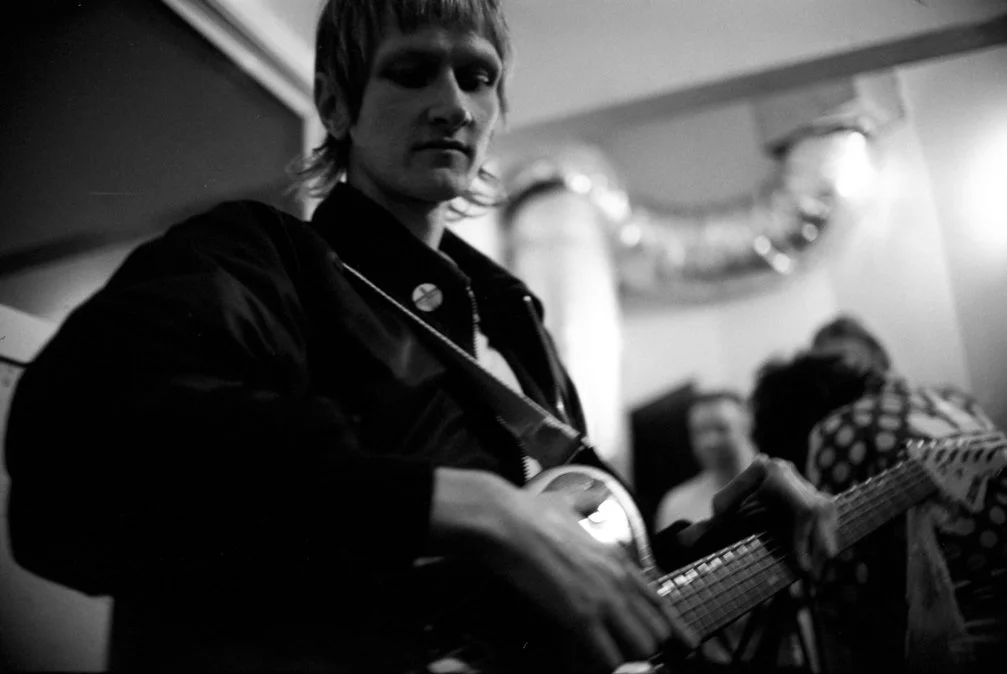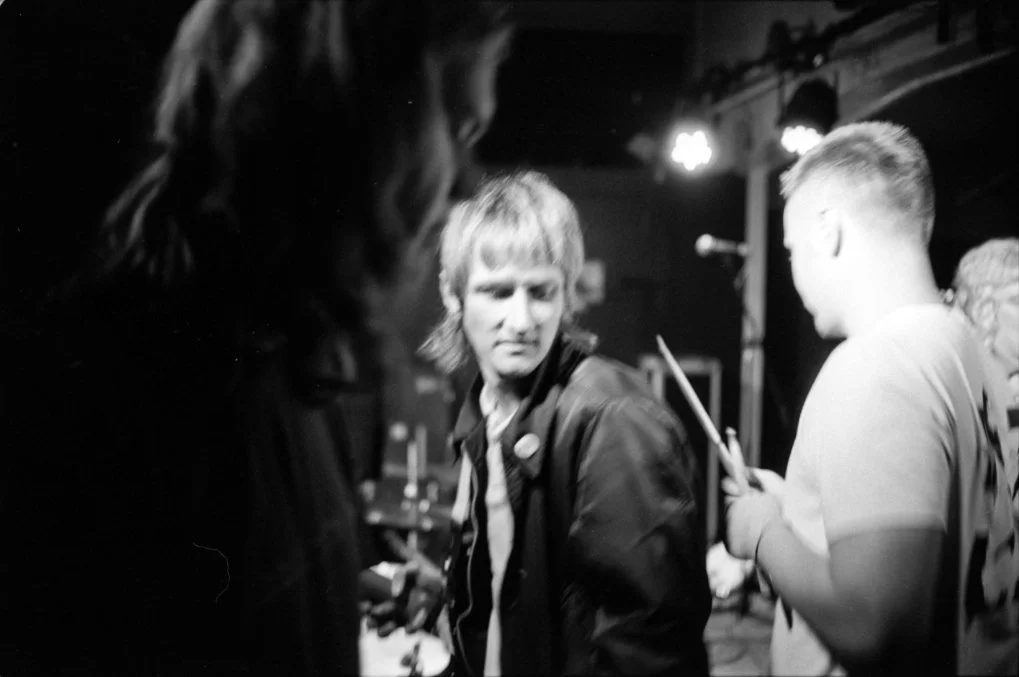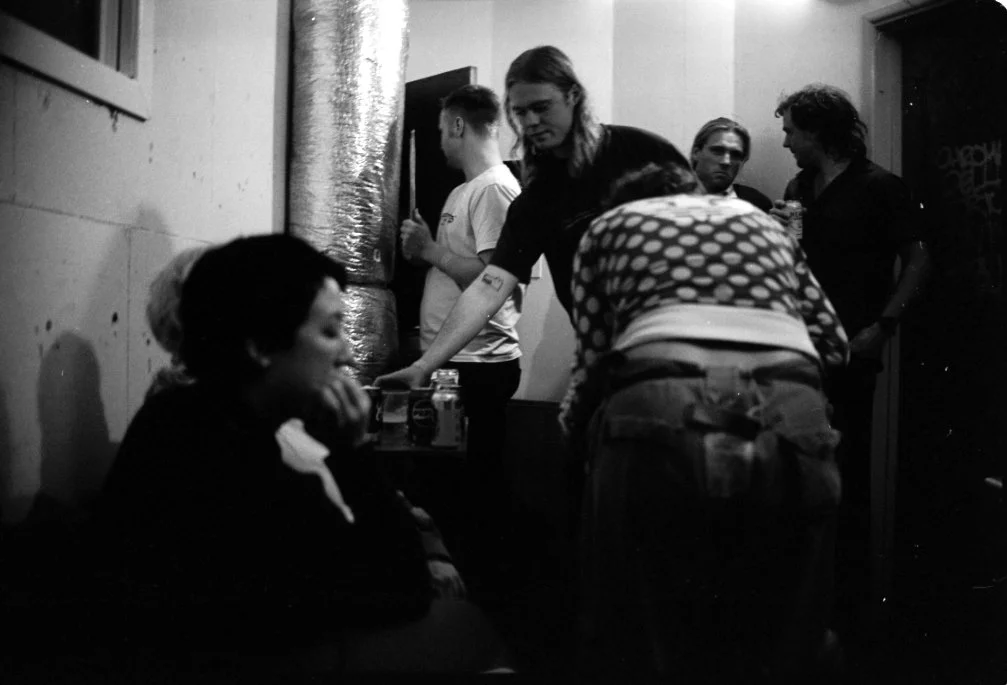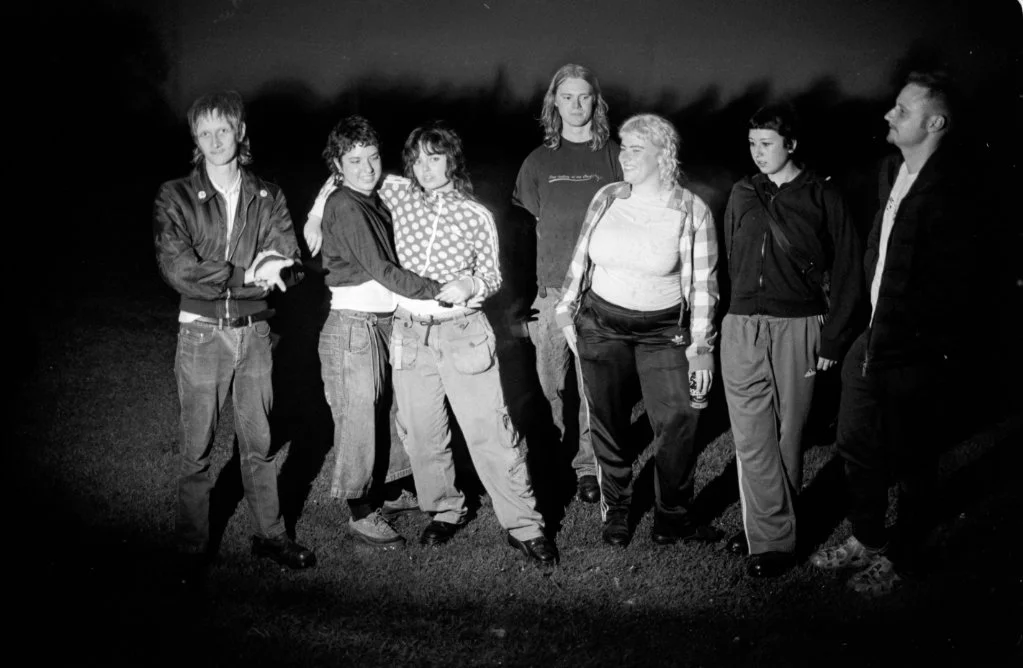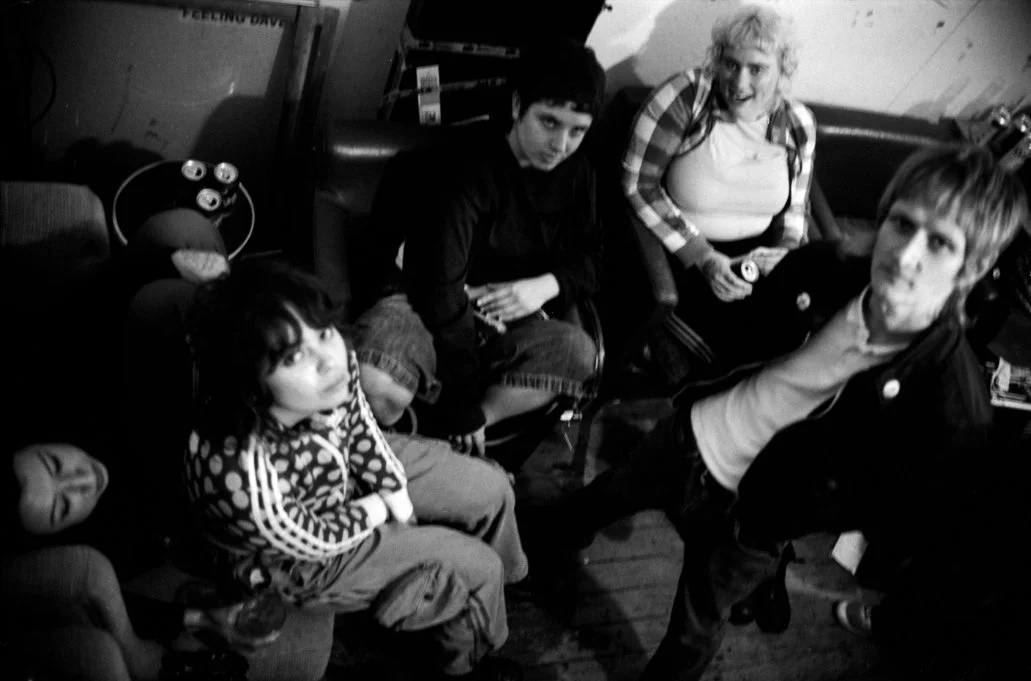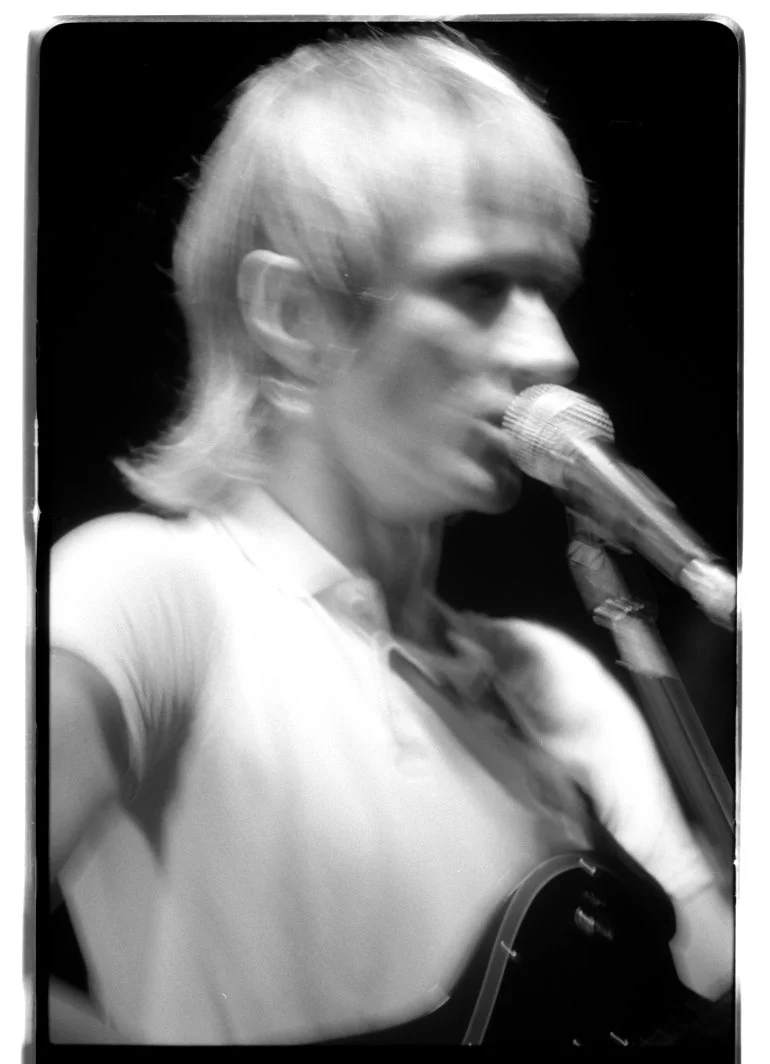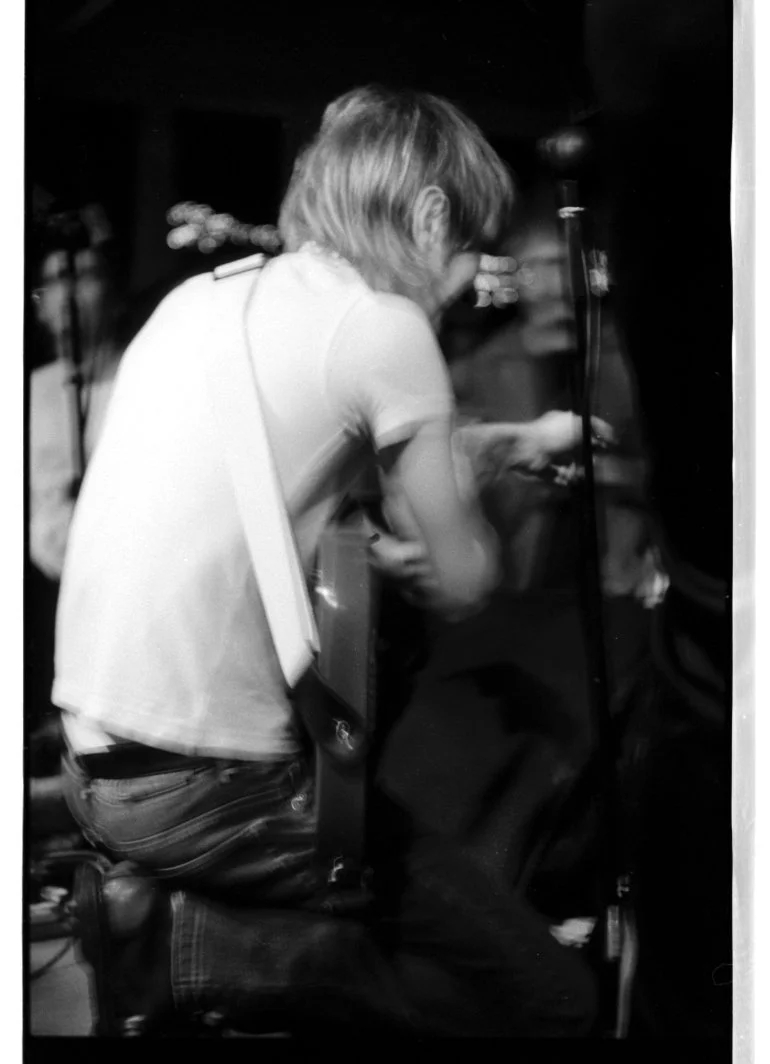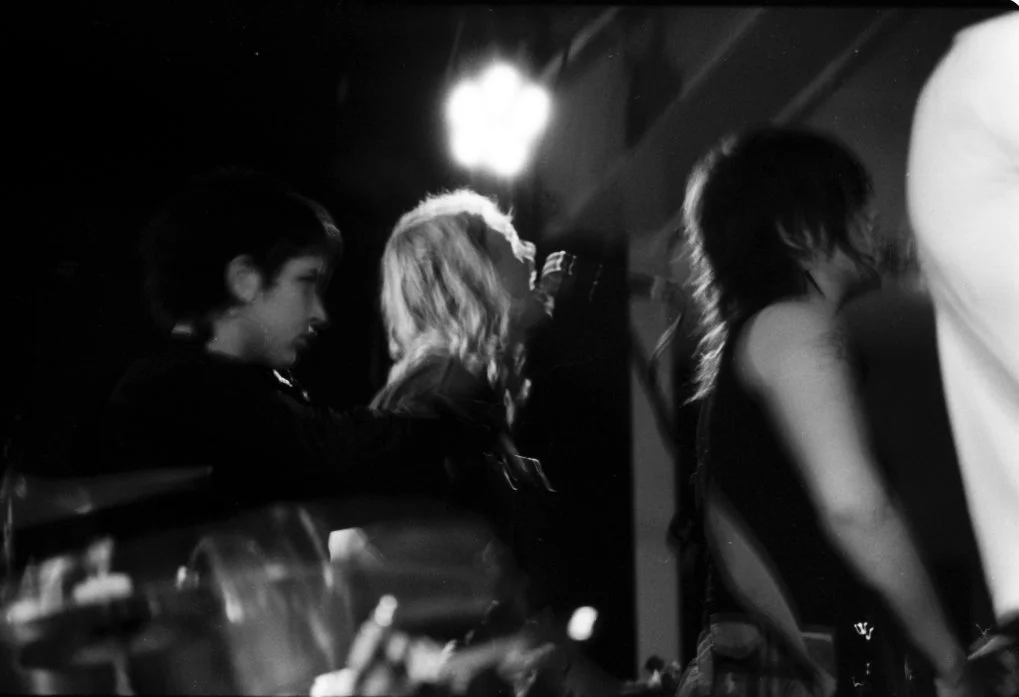Spike Fuck: That Fateful Day In September
Photography by Bingham Thurgate.
Being a journalist makes you a conspiring, para-social sort of person.
You compulsively try to reach people who don’t know you, whose art astonishes you nonetheless, to talk with them about stuff that’s ultimately none of your business. Spike was one such person for me - someone I had wanted to write about for a while. I didn’t know the extent to which he was beyond my reach. He was, in fact, beyond the reach of society itself.
Spike's three-ish-year hiatus was actually never meant to be a hiatus. It was an ending. “I was done. I was totally done. I was never going to come back. I was… tired”
These feelings, fuelled by a suspicion that his influence as a musician/artist had been a bad ‘pernicious’ one, finally came to a head in 2021, by way of a collision of addiction and grief. ‘I felt like I didn’t have anything more to say.’
Aspirations of purity, exaltation and spiritual suicide, replacing thoughts of actual suicide, soon translated into action when Spike embedded himself quietly and deeply into the Catholic faith, seeking God in a monastery in Tasmania. For years, he was dogged by the idea of pursuing a religious vocation. He attended Russian Orthodox Divine Liturgy and the Latin Mass. Latin, being the sum and whole of its parts, so impoverished and beautiful, it made sense when Spike leaned in and told me, ‘They say it's the language spoken in heaven.’
On that fateful day in September, the language spoken at the Bangalow Bowlo between soundcheck and call-time was definitely not the language of heaven. For three hours, Spike and I were comprehending each other’s God. And the conditions for God-comprehension were quite challenging. It is a story that can’t really be told. A story that was barely told and barely heard, above the clamour and chaos of a swarming venue, furnished with bodies that multiplied with each sentence.
There was a 6th-century saint, St. Augustine, who spoke about the first time he realised his sinfulness. Spike described his story to me as ‘quite wholesome and cute in a way’.
Augustine trespassed into an orchard and stole a pear, not because he desired the fruit, but simply because he knew it was wrong to do so. It was sin for sin's sake, without excuse. Having no enticement to evil but the evil itself.
I knew where this was going- to a place not so cute and wholesome. It points directly to something Spike and I once shared: an appetite for love objects. A willingness to transgress to get them. Neither of us was hungry, and the fruit itself, much like Augustine’s rotten pears, turned out to be no good anyway.
For Spike, getting off rotten fruit meant forfeiting the orchard entirely. He gave up music, gave up sex, gave up society and popular culture.
‘For me, at that time, there was seemingly nothing in this world that was true and good. And no salvation to be found in music…
So I was faced with the question: Is there anything that can make this life bearable besides drugs? And the only answer that seemed to suffice in the face of this great lack was to set about truly and earnestly seeking God… transcendence, divinity. At least something far beyond myself. Although I wasn’t at all sure what any of that meant. While doctrine isn’t strictly necessary for this, I sought it out because I thought if God is real, God would communicate this reality to us in a way that we can comprehend. Besides, for thousands of years, people much wiser and holier than me had believed and lived this way, so who was I to reject it outright? So I took to studying Catholic theology with seminarians, Sisters of Mercy nuns and Franciscan Friars. And for a time, I thought very seriously about a monastic vocation. It seemed like the only feasible option for me at that point… gripped by the idea of giving my life entirely to this pursuit of the divine, of God. Because after all is said and done, God would, of course, be the ultimate pursuit.’
I, however, was trying to find a way to still hang around the orchard, but my life was beginning to reek of Hirudoid cream, Dean Blunt and lies. We ended up at a similar place even though I haven’t spent any time in a confessional, and Spike’s never hyperfixated on Florida. We both ended up at god. His was capital G, and mine was step two.
I write this cautiously. There is a rhetoric that faith is not something we need right now. At its best, it is branded as mindfulness, and at its worst, motivates genocide. This is a misunderstanding, and not what I’m talking about. When we’re young, we’re so self-sufficient, we don’t even need that much religion. But as the world happens —or rather, we happen upon the world—a place that doesn’t really care what we do or who we are, we begin to need Something Else. Some transcendence is good for this. Especially if you keep devouring rotten fruit against your better judgment.
The problem with transcendence is that it hates to live in the human body.
EA: In your writing, there's always so much body- and then also so much air and spirit, and there's a negotiation between the two- and surrender becomes the clearest way to do that.”
SF: Yes. I think the experience of transcendence is inherently fraught. Because even an encounter with God is inseparably bound to the painful awareness of your distance from Him. Still, I think chasing after this experience is still worthwhile, and I have to remind myself daily to orient myself towards that goal.. To go above and beyond, to seek transformation, as out of reach as it may seem most of the time.
EA: “to try.”
SF: Yes, to try. And people give up, They stop trying at a certain point and decide change is no longer possible. But I think in striving to change, regardless of the outcome, keeps you somewhat well-adjusted and sane… All of life insists, despite the genuine horribleness of it all at times. And strangely, both trying and surrendering seem to occupy a similar space in spiritual terms…
The animal that is conscious of itself trying has an affliction that Saint Augustine called Divine Restlessness—the issue of soul and matter warring with each other; a never-ending spiritual immune response within the leaky primate constitution that is awake to its flaws. A person who is aware they are “a soul in a unit or body that vehemently disagrees with itself (S),” and still thinks they can do better.
EA: The idea of transformation is why I have been really interested in you and your music, because it is something you seem very committed to.
SF: Yes. Not by choice and not only in music. I’ve always been obsessed with becoming something else, with being more, feeling more. And I can’t ever seem to shake that. Music of course allows for self-expression and connection. And there’s this strange alchemy that happens: when you set the lyrics to music and movement, the pain and suffering are somehow transmuted… It also has something to do with synthesising and reconciling opposites and embracing it all… the immanent and the transcendent and so on. It's like fire; I want to burn with change, and be burned by it…purified by it. In spite of my attachments, to myself or to others, I want my interactions with people and the world to be pure. Because I’m not satisfied that I’m the be all and end all. What a tragedy that would be. And so terribly boring. I want to align myself with the inherent reason of the universe. I want to act from a place of rational love.
EA: You don't want a narrative.
SF: I want it all. And that sounds glib- but I also think it's true. Whatever I desire, or what others may deem necessary for a person to desire or accept in life, I have to discover myself. For instance, doctrine was something outside of me-something objective, something constricting even. And I suppose, in a sense, I want to be constrained. It always comes back to that fundamental tension for me… a pitiful subject that really can’t know anything *out there*, but still seeks to still ground itself in something objective, something real.’
Something about imagining Spike existing in near-complete silence for years hurt my feelings. So I asked, ‘Is music something you can live without?
And then I asked the question interesting journalists aren’t meant to ask- the obvious one, “...And why did you come back to it?’, with the desperation and earnestness of a child wanting reassurance that Santa is real forever. Santa Spike.
SF: Because it regulates me, gives me a more immediate sense of why I’m here… and because I’m good at it.
EA: Do you think you have a gift?
SF: Everybody has a gift. Some people are called to carpentry, others to writing, others to medicine. And if you don't practise that gift, that vocation, you do become sick in a sense. I found it’s just something I have to do to live. So I have to make it work.
EA: Did you feel like you were becoming sick without it? In isolation?
Yes, probably. Music can feel like this powerful wind behind you- not excitement- but something that pushes you along and takes you to unexpected places. Like here, with you, now. You can't be of service to others if you’re always preoccupied with the self even if it is under the guise of eternal salvation. Sometimes, you just have to act, come what may. And through action comes a kind of resolution. You learn, you grow, you experience a million tiny changes that all add up to something… you become more expansive. The line between you and the world becomes thinner… and not in the sense of being *of* the world and losing yourself in it, but being a participant in it… in a very humble, human way. You have to be out in the world, like Christ was. You have to have the scent of the sheep on your clothes.
The scent of sheep on your clothing. Of course. Artists (good ones) all make work about things that live inside of them. It all comes from before. You will find that those who succeed in something close to purity will be those who stink of change. They will reek of the fallen state. It is the smell of going somewhere and coming back. It is a magnetism I had no words for until now.
There are seven people in the green room, all radiating with this magnetism, packed onto a couch with their arms around each other— six of them are new musicians in the band. A significant change. The sound is different, which is nothing to grieve and shouldn’t come as a surprise to you now if you’ve been paying attention. Especially if you consider that Spike's iconic EP Smackwave, initially released in 2016, was largely made in solitude.
In my rush to find the band members and the photographer (Bingham Thurgate) before call, I was frantically looking around the venue when I saw Elvis. He was tall and alone, facing the opposite direction of the bar- which is to say that he stood out. When I asked him what he was doing, he just raised a finger and pointed to a screen across the room. He was watching the footy. It didn’t take long for me to decide that I like Elvis.
It’s funny - when you are in church, the faces of the saints stare down at you. I noticed from my corner backstage when they all performed, faces stared up with a similar pale expression- one that seems to say: ‘prove it.’ In witnessing this, I felt I was where I shouldn’t be- on the lonely, delivering side rather than the together receiving end.
But also, Lili does this perfect thing, where she holds her hands behind her back as she sings, and Fionnuala grins with enchanting dimples, often turning away from the crowd. Elvis strums and sometimes yells, Harry stoically punctuates, Vindi waits, mystically listening for something, and Zari curls over with her shoulders into her guitar. Cllawde is creeping around the stage with her camcorder in hand- Everything Spike and I had spoken about: trying, transcendence, change- was all there in front of me.
The word harmony came up a lot when I spoke with the band members. And it became obvious that harmony is really just calibration- adjustment, change in action. Some parts are moving, and others are lost in a kind of deep focus, each person extending oneself beyond the body towards instrument. And Spike-
I’m not sure how to explain what it's like to watch Spike perform. My brain goes to Texas in 2015, to a man called Donald Newbury, whose final words have lived on the wall above my desk for years;
“Each new indignity defeats only the body, pampering the spirit with obscure merit. I love you all. That’s it.”
I’ve never met a creature so riddled with this obscure spiritual merit as Spike. You can feel it in his voice when he sings.
Having forfeited himself over and over again, forbidding any attachment to any sort of identity or indignifying narrative- sufferer, addict, priest, musician, etc. Spike seems to have somehow learned not to resist the extinction events when they come for him. His guiding star, from what I could gather, is freedom. But not freedom without responsibility or hard memory. It is a suspicious, roaming freedom. A freedom that suspects something else might be going on, never deciding if something is bad before tasting it first.
The only virtue that counts is trying. An unchanging life of stasis is the heart flat-lined. An unquestioned life is a life without mystery. It is the body, unscathed. Without holes in its palms or calluses on its fingers. It is lonely and has nothing to show for itself. I’ve sampled it and retched.
The band closed with ‘Kind Hearts’,
A part of the lyrics goes, 'True words are the hardest words to take.'
But those words were taken easily at the Bangalow bowls club, and they were true.
That fateful day in September was, to most attending, a fun gig to enjoy great music. And it was successful in that regard.
But really,
It was a prayer overheard.
SPIKE F*CK’s Live from the Underground comes out TODAY, the 17th of October, and their new album Pure O comes out next year.

